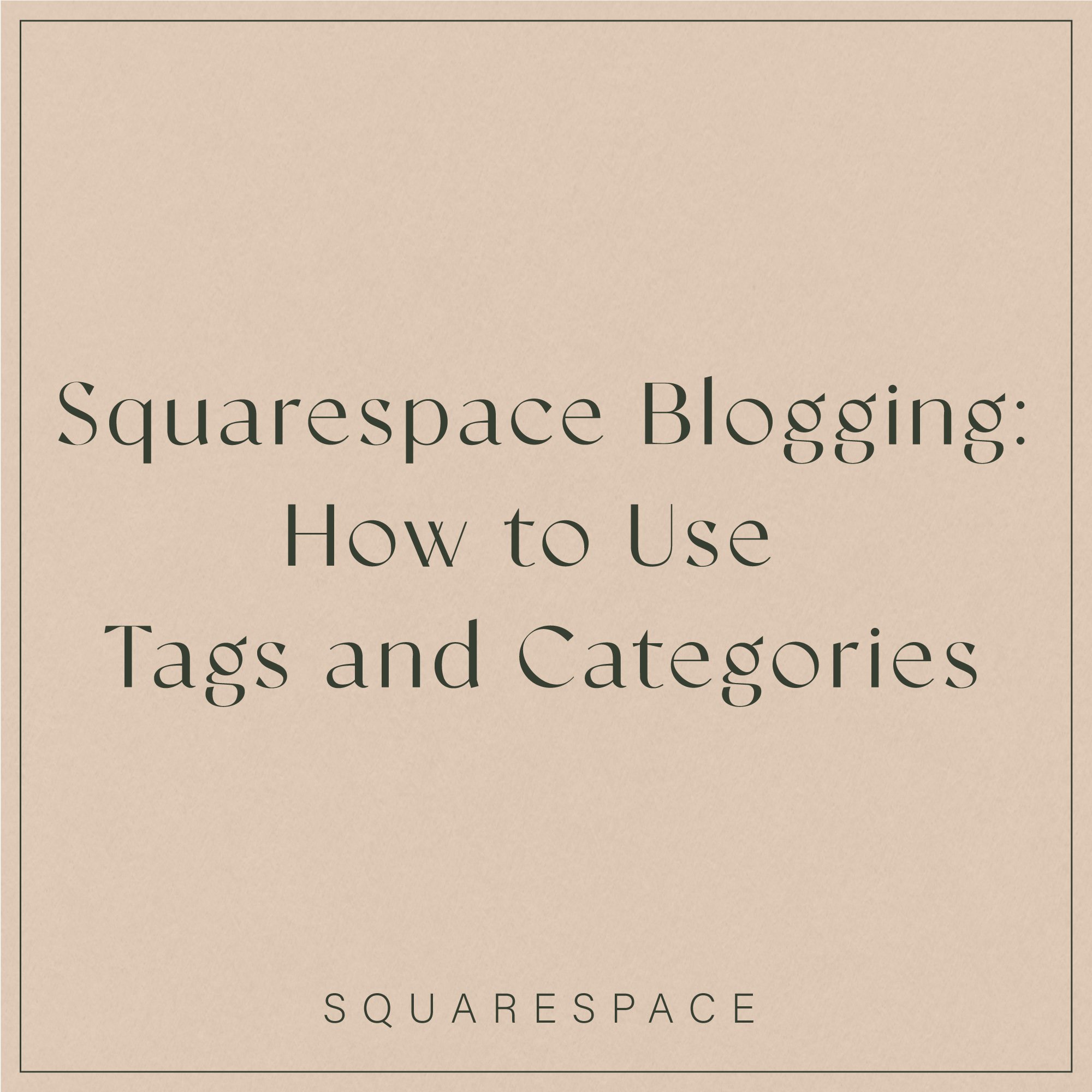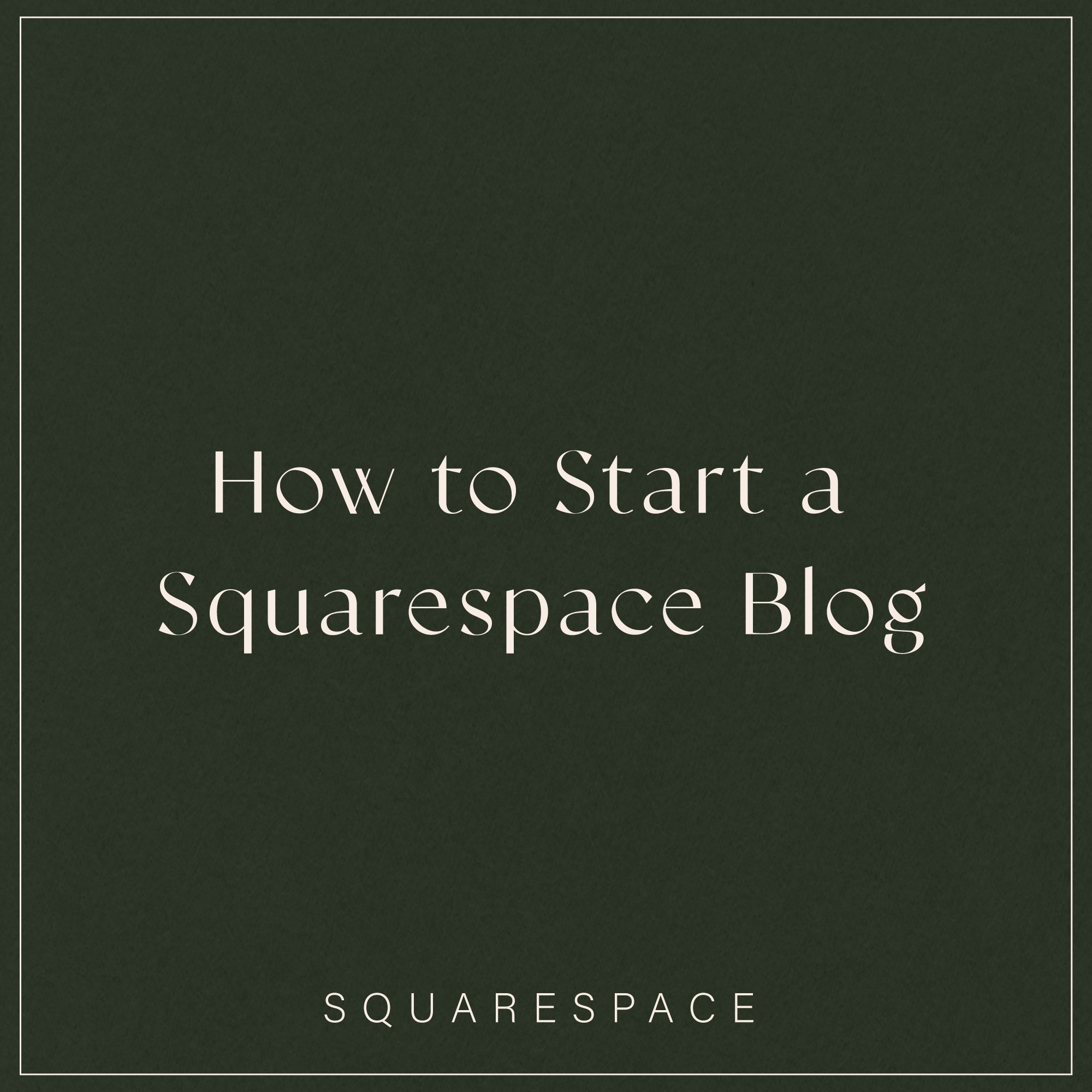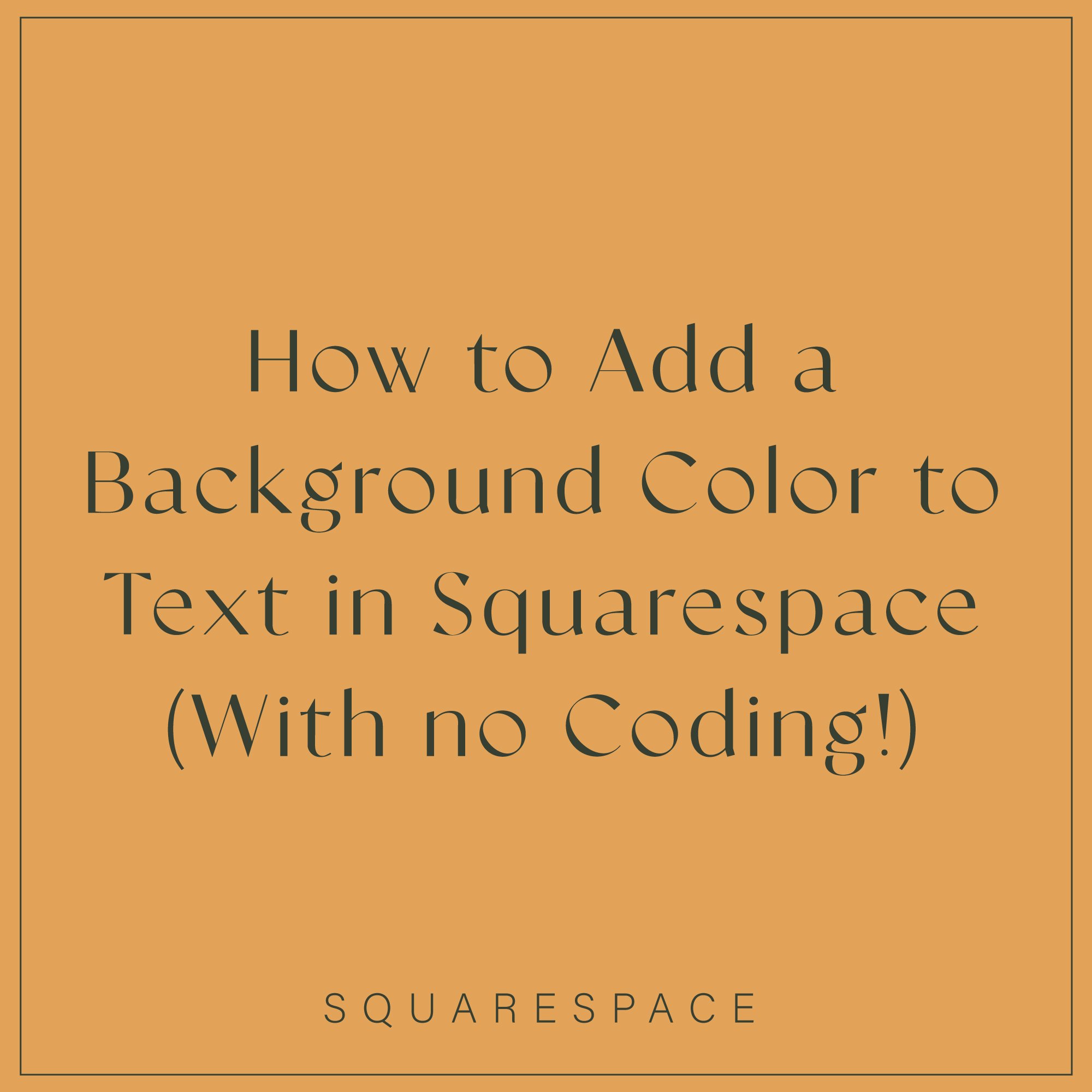Squarespace vs WordPress: Flexibility, Security, Pricing + SEO
So you’re on your free trial of Squarespace right now, loving the platform and how user-friendly it is but…
Is it really going to be worth the switch over from WordPress?
As a website designer, I spent some time taking a nosy into the different platforms out there and the confusion paralysis can be overwhelming. In fact, I actually started designing on WordPress trying out themes from Envato and the Divi theme. If you Google hard enough, you might still stumble into my first ever blog on WordPress. 🙃
There’s definitely a place for both WordPress and Squarespace depending on what you would like your website to do. It’s more of a question of which platform better suits your own needs and budget.
In this post, I’ll be helping you tackle that question, along with how much you can expect to pay for both platforms.
Open Source vs Closed Source
Come again?
Before we get into the pros and cons of both platforms, something that’s key to consider is whether a platform is an open source or closed source. In other words, who exactly has access to the platform?
WordPress
WordPress is open source. This means that anyone from your neighbor Bob to that super-smart developer on Upwork can go in and modify the platform.
What does this mean for you?
It means that there are literally millions of plugins out there to help you customize your WordPress website and get it to do what you (hopefully) want it to do. With enough coding knowledge, you can pretty much create anything your little heart desires.
Squarespace
Squarespace is a closed source. This means that everything is built into the platform itself and there are less options for customization - Unless you know a few handy hacks of course. 😉
What does this mean for you?
It means that Squarespace pretty much does everything for you. Domain, hosting, e-commerce, and all that jazz. There are fewer options for customization, as it’s only the techie guys at Squarespace HQ who can design and integrate major functions within the platform.
In terms of flexibility, WordPress definitely trumps Squarespace, but it’s not without a cost, and that price is security.
Security
If you’re building your first ever website, it’s hard to imagine the security issues that might arise on a website. And to be honest, security issues tend to increase as your website increases in traffic. So at the very beginning, it’s really not something to lose sleep over.
Saying that…
Who’s had their website hacked on WordPress and had to dish out $$$ for a developer? 🙋🏽
Oh yes, and this is quite the story.
Not to go into the horrifying deets, this is what happened…
That’s 900+ fake urls redirected from my website to adult Japanese websites definitely not suitable for work.
Security is important on the internet. If your website is your primary source of income (which for most online businesses it sure is), securing your website from hackers is one of your top priorities. Not to be too overdramatic but the long term implications on your income, SEO and even legal ramifications can be harmful to your business.
So what does this mean for Wordpress and Squarespace?
Wordpress
Wordpress is so widely used that it’s more targeted by spammers and hackers.
As Wordpress is an open sourced platform, it means that anyone (including lovely Bob) can pretty much walk in unless you have adequate security measures and firewalls in place. And as your website grows in traffic, so will the number of attacks on your website.
In the above example of my own website, my developer informed me that the hacker had coded a number of backdoors in and out of my website so the hacker could pretty much come and go as he pleased, doing what ever he liked in the backend of my site.
And when you consider that for most Wordpress websites to look professional, you’re going to want to install a series of plugins for customization, security and SEO, this only adds to the risks.
If you think of your website as your online home, plugins are like little windows into your home. Some plugins have high security which makes it difficult to break in and enter. But that plugin that Bob built whilst hustling his 9-5, yeah it slipped his mind to add security measures. And he’s also chillin’ in Bali for the next 6 months, so he probably won’t be updating the plugin anytime soon.
Plugin updates are important as they keep hackers out and your security up to date with the latest version of Wordpress. It’s important to keep tabs on which plugins are being updated regularly and which ones are becoming obsolete because, well if the creator found something better to do, this leaves your website vulnerable.
Squarespace
If your goal is to focus on the content and design of your website, instead of whether your website needs security updates, or saving from a hacker, Squarespace pretty much takes care of it all.
This means no tech meltdowns and just in case there is one, Squarespace support are on hand. Their customer service is really responsive and generally fun to have a chat with.
Whilst Squarespace doesn’t have as many customization options when you’re creating your website, I encourage you to ask yourself, ‘What would I like my website to do?’
Let’s say you want an Instagram footer. On WordPress, there are multiple plugins for this (get ready to go down a rabbit hole). You’ll need to research which plugin best fits your needs as well as the cost because they’re not all free. In fact, the free ones are probably the ones that are least likely to be maintained by its creator. So it’s important to do your research.
On Squarespace, there’s an Instagram block that can be dragged and dropped pretty much anywhere and customized to your liking in a number of ways. Easy peasy. Zero research and time invested.
Whilst WordPress sure has choice, there’s an annoying paradox to too much choice. It can be really overwhelming. And I say that after finding myself down a fair share of plugin rabbit holes.
Sometimes its more productive to have less options and opt for simplicity. Which is exactly Squarespace. Pretty. Darn. Simple.
Squarespace guards your online home so you can focus your design and content.
In terms of security, Squarespace definitely trumps WordPress. If you’re on WordPress, at some point you’ll need to pay a developer. This brings me to cost.
Pricing
If you’re starting an online business, you’ll likely have a budget in mind and want to keep your costs as low as possible. Let’s go through what you’ll need to pay for.
WordPress
Approximate costs for a WordPress website are:
Domain: $10/year
Hosting: $72/year (depending on the host)
Theme: $30+ (one time)
*Developer: $50/hour
*Plugins: $15+ a plugin
Squarespace
Approximate costs for a Squarespace website are:
Domain: $10/year
Hosting: $216/year (business plan)
Theme: $0
*Developer: $0
*Plugins: $0
The developer costs and plugins costs are optional. How much your website developer costs will depend on many factors including the complexity of your website, so it’s a hard one to put an exact number on.
Plugins will depend on how much you want to customize. The more flexibility and unique features, the higher the cost.
Unlike with Squarespace, for WordPress, you will more than likely have to purchase a theme. There are a number of free ones out there but if you’re going for a professional look, then buying one is a must. Premium themes also come with more customization options. So whilst a decent theme can start at around $30, for a custom builder such as Divi, expect to pay in the $200+ mark.
In total, really the pricing doesn’t differ that much. By the time you add everything up it pretty much evens out. That is until you need to add on extensive developer costs for security and customization.
Oh, what’s that I hear? SEO? Let’s get onto that little nugget, shall we?
SEO
As I mentioned I’ve been blogging already for over two and a half years and one of my main concern was losing the Yoast SEO plugin. It’s important to note here that Yoast itself does not improve your SEO ranking. Creating valuable content that can be found in search engines using keywords and obtaining backlinks from more authoritative sites are more important.
Nevertheless, with Yoast there are two main parts: SEO Analysis + Readability.
Let’s tackle readability first.
Readability is the ease at which a reader can understand your content. The more complex language you use, the harder it is to understand. This can negatively impact your SEO rankings.
Whilst Squarespace doesn’t do this, I’ve found a great (and free) replacement. The Hemingway App. This app scores you on your readability and is really easy to use.
Now for SEO Analysis.
SEO analysis in Yoast includes multiple things including using your keyword in the image alt text, subheadings, SEO title, slug, meta description, introduction, using keywords adequately throughout content without stuffing, having internal links, outbound links, and text length.
Using the Hemingway App to check text length, the rest is built into the Squarespace platform.
Now I’m not going to sit here claiming I’m an SEO genie. 💁🏽
But, having used both platforms, the point that I will make is that everything I previously did for SEO in Yoast to get the green light, is all possible in Squarespace.
Understandably you don’t get the satisfaction of a pat on the back with a green light. But ranking well is more about the quality of your content than whether you pass GO and collect $200 each time you publish.
To Summarize:
WordPress is definitely a steeper learning curve. But if you require high customization, choice and flexibility then this is the platform for you. It also helps to have an extra budget put aside for developers to secure your website as your site grows.
Squarespace is perfect if you’re looking to avoid the tech meltdowns, don’t want to spend hours maintaining your website, and prefer to focus on content. Its interface is simple to use, and you don’t have to go annoying your developer with questions and requests every other day.
I hope that was helpful!
The main reason why I started out on Wordpress was because everyone pretty much recommended it (with a juicy Bluehost affiliate link). No platform will ever have 100% functionality of everything you could possibly want and chasing platforms can leave you drained and unproductive. So my best advice would be to just get started! And correct course as you go. 🙂































